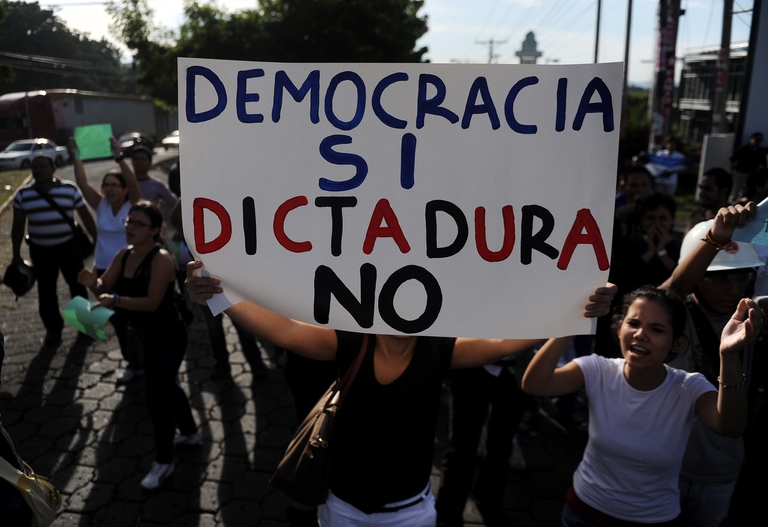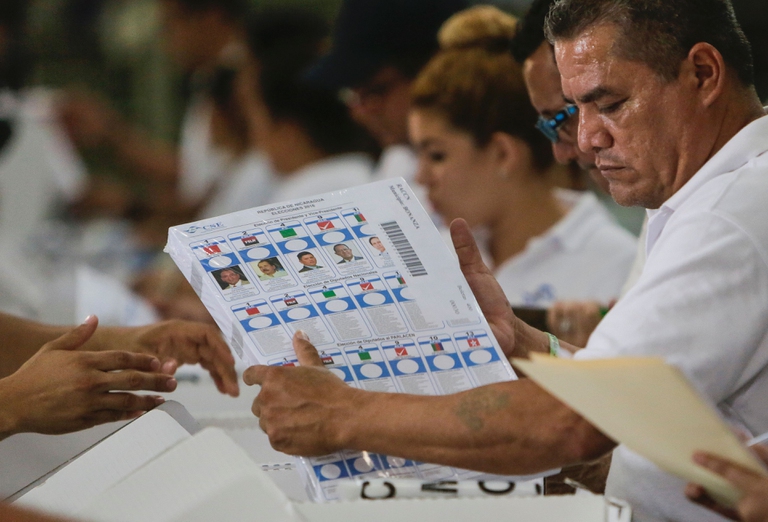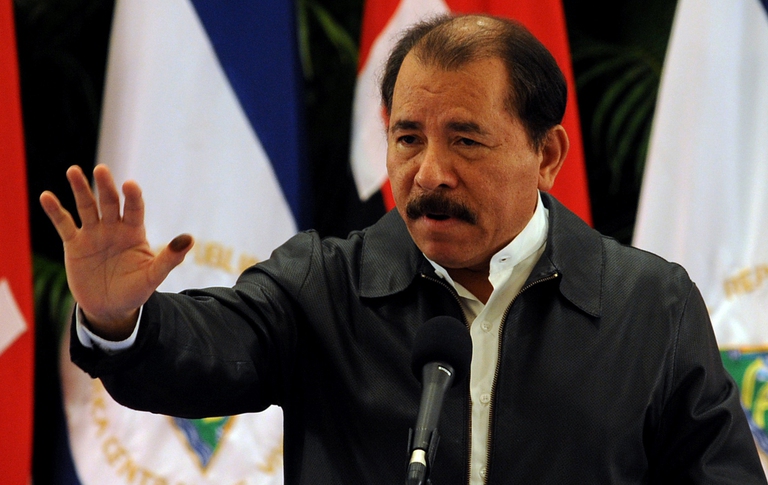
From Nepal to Morocco, from Madagascar to Peru, many antigovernamental protests that took place these weeks were led by Gen Z protesters.
The 2016 Nicaraguan elections took place on the 6th of November: voters chose the next country’s president, vice-president, members of the National Assembly and representatives of the Central American Parliament. Incumbent President Daniel Ortega, leader of the Sandinista National Liberation Front (FSLN), together with his running mate and wife Rosario Murillo won 72 per cent of votes out of
The 2016 Nicaraguan elections took place on the 6th of November: voters chose the next country’s president, vice-president, members of the National Assembly and representatives of the Central American Parliament. Incumbent President Daniel Ortega, leader of the Sandinista National Liberation Front (FSLN), together with his running mate and wife Rosario Murillo won 72 per cent of votes out of around two-thirds of the ballots counted.
The outcome was predictable as Ortega faced no real competition. The Constitution was changed in 2014 to enable presidents to serve an indefinite number of terms, and in June this year the Supreme Court took the controversial decision of ousting incumbent President Daniel Ortega‘s main contender, Eduardo Montealegre, leader of the opposition Independent Liberation Party (PLI), from the elections.
Electoral processes in Nicaragua have been widely criticized in the past both by civil society organisations and the international community. The lack of transparency and gradual tightening of the FSLN’s control over democratic institutions have undermined the country’s democratic aspirations on numerous occasions. The credibility of the elections has been weakened by common irregularities such as unexplained delays in voter registration, outdated lists of voters (for example, in the 2011 general elections 71 per cent of registries included names of deceased individuals), and disproportionate representation in electoral bodies.
Furthermore, judicial means have been used to exclude opposition groups from electoral processes, like the case of Yatama, the main indigenous party, which was unlawfully excluded from municipal elections in 2000. Also, Ortega announced in June that Nicaragua won’t be welcoming international observers to monitor elections. “Shameless observers, here stops the observation! Go observe other countries, if you wish,” he said.
The popularity of Ortega and his party is primarily attributable to socio-economic advances, including reduced poverty levels, improved access to education and social services, according to observers. Civil society organisations emphasise, however, that this progress hasn’t reached every corner of the country, as over 60 per cent of rural areas suffer extreme poverty, with indigenous and Afro-descendent groups being the most adversely affected. It should also be noted that the pace of progress itself has been called into question since the country’s economic growth is considerably slower than in the rest of the region and Nicaragua still has the lowest GDP in Central America.
Abuse of power has a long tradition in Nicaragua. The country was subjected to the hereditary dictatorship of the Somoza family between 1927 and 1979, only to be subsequently ravaged by a vicious civil war between the leftist Sandinistas, who overthrew the Somoza dictatorship, and the right-wing Contras rebels. The country began to regain stability after the institutionalisation of democratic instruments, most notably the constitutional reform of 1987 that extended legislative control over the political system. After Sandinistas led by Ortega lost power in the first truly democratic elections in 1990 to Violetta Barrios de Chamorro, first female president in the Americas, the party maintained a strong presence in the legislature, and since 2006 has retained the largest representation in the government with Ortega as president. Ironically though the FSLN, which came onto the political scene fighting the dictatorship, is the same political force that is now challenging the consolidation of democracy.
The outcome of the upcoming elections is already determined. The only remaining question is, will there ever be an end to this daunting déjà vu.
Siamo anche su WhatsApp. Segui il canale ufficiale LifeGate per restare aggiornata, aggiornato sulle ultime notizie e sulle nostre attività.
![]()
Quest'opera è distribuita con Licenza Creative Commons Attribuzione - Non commerciale - Non opere derivate 4.0 Internazionale.
From Nepal to Morocco, from Madagascar to Peru, many antigovernamental protests that took place these weeks were led by Gen Z protesters.
Joe Biden breaks ahead. Sanders falls but stays in the race. Bloomberg is hanging by a thread. Warren is invisible. The final results of Super Tuesday, a key day in the Democratic primaries to choose the candidate for the the US presidential elections.
“Local leaders have to ensure that changes happen. Every action a city takes for climate has an impact on the whole world”. We interviewed Ekrem İmamoğlu, Mayor of Istanbul, about mayors’ key role in tackling the global climate crisis.
Il giudice Steven Reed è diventato sindaco della città del profondo Sud, culla del movimento per i diritti civili.
A successful day for Greens and nationalists, while traditional parties suffer. The outcome? A European Parliament divided into homogeneous “slices”. The final results of the European elections 2019.
From 23 to 26 May voting will take place in the European Elections 2019. Who can vote, who the candidates are and how to vote to elect the 751 representatives at the European Parliament in Strasbourg.
After a series of diplomatic assignments, including with the United Nations, Sahle-Work Zewde has become the first female president of Ethiopia.
The House goes to the Democrats, the Senate remains Republican. But the midterm election results are positive especially for women. How the vote for Congress and 36 governors went.
In the midterm elections of the 6th of November, in 36 out of 50 United States a new governor was chosen on top the members of Congress. Here are all the results of the gubernatorial races.










